Magnesium is an essential mineral that plays a critical role in many bodily functions, including maintaining healthy hair growth. Foods that are rich in magnesium include leafy green vegetables, nuts and seeds, whole grains, and fish. In this blog post we will provide valuable insights into the potential benefits of magnesium for promoting healthy hair growth.
Understanding the Role of Magnesium in Hair Growth
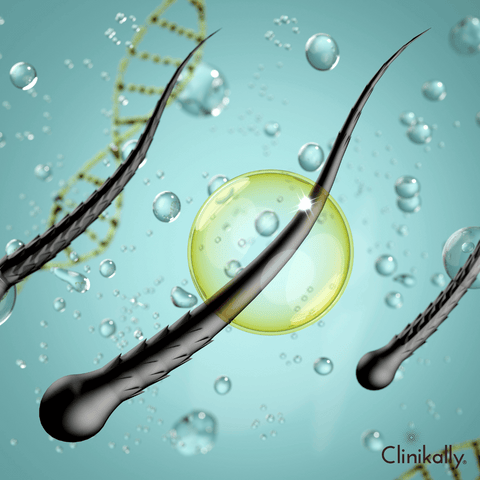
Magnesium is an essential mineral that plays a vital role in many biological processes, including hair growth. Magnesium helps to promote healthy hair growth in several ways:
-
Promotes Healthy Hair Follicles: Magnesium helps to stimulate the growth and development of hair follicles, which are the structures that produce hair. A deficiency in magnesium can lead to impaired hair follicle growth and weaker, thinner hair.
-
Enhances Blood Flow: Magnesium is essential for maintaining healthy blood flow, which is crucial for delivering nutrients and oxygen to the hair follicles. Improved blood circulation to the scalp can help to promote healthy hair growth and prevent hair loss.
-
Regulates Calcium Levels: Magnesium helps to regulate calcium levels in the body, which is important for healthy hair growth. Calcium buildup in the hair follicles can lead to hair breakage and hair loss, and magnesium helps to prevent this by ensuring that calcium is properly regulated.
-
Reduces Inflammation: Magnesium has anti-inflammatory properties that can help to reduce inflammation in the scalp. Inflammation can damage hair follicles, leading to hair loss or slower hair growth.
-
Maintains Hormonal Balance: Magnesium is important for maintaining hormonal balance in the body, which is crucial for healthy hair growth. Hormonal imbalances can lead to hair loss, and magnesium helps to prevent this by regulating hormone levels.
Magnesium can be found in many foods, including leafy green vegetables, nuts, seeds, whole grains, and fish. In some cases, magnesium supplements may be necessary to ensure that the body is receiving adequate amounts of this mineral.
Overall, magnesium plays a critical role in hair growth by promoting healthy hair follicles, enhancing blood flow, regulating calcium levels, reducing inflammation, and maintaining hormonal balance. By ensuring that the body has adequate levels of magnesium, individuals can help to prevent hair loss and promote healthy hair growth.
The Connection Between Magnesium Deficiency and Hair Loss
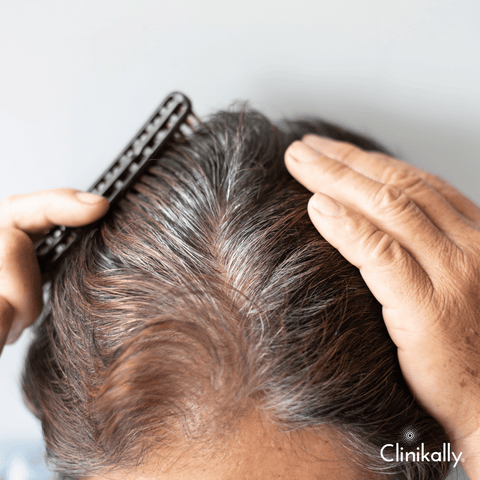
Magnesium is an essential mineral that plays a crucial role in the body's biological processes, including hair growth. A deficiency in magnesium can lead to a variety of health issues, including hair loss.
Here are some of the ways that magnesium deficiency can contribute to hair loss:
-
Impaired Hair Follicle Development: Magnesium is essential for the development and growth of hair follicles. A deficiency in magnesium can lead to weaker, thinner hair and impaired hair follicle development.
-
Reduced Blood Flow: Magnesium is important for maintaining healthy blood flow throughout the body, including to the scalp. Without adequate blood flow to the scalp, hair follicles may not receive the necessary nutrients and oxygen for healthy hair growth.
-
Increased Inflammation: Magnesium deficiency can lead to increased inflammation throughout the body, including in the scalp. Inflammation can damage hair follicles and contribute to hair loss.
-
Hormonal Imbalance: Magnesium is essential for maintaining hormonal balance in the body. Hormonal imbalances, such as those associated with thyroid disorders or polycystic ovary syndrome (PCOS), can cause hair loss.
-
Calcium Build-up: Magnesium is important for regulating calcium levels in the body. A deficiency in magnesium can lead to excess calcium build-up in the hair follicles, which can cause hair breakage and hair loss.
To ensure that the body is receiving adequate amounts of magnesium, it is important to eat a healthy and balanced diet that includes foods rich in magnesium, such as leafy green vegetables, nuts, seeds, whole grains, and fish. In some cases, magnesium supplements may be necessary to correct a deficiency.
In summary, magnesium deficiency can contribute to hair loss by impairing hair follicle development, reducing blood flow, increasing inflammation, causing hormonal imbalances, and leading to calcium build-up in the hair follicles. Ensuring adequate intake of magnesium through diet or supplementation can help to promote healthy hair growth and prevent hair loss.
How to Increase Your Intake of Magnesium for Healthy Hair
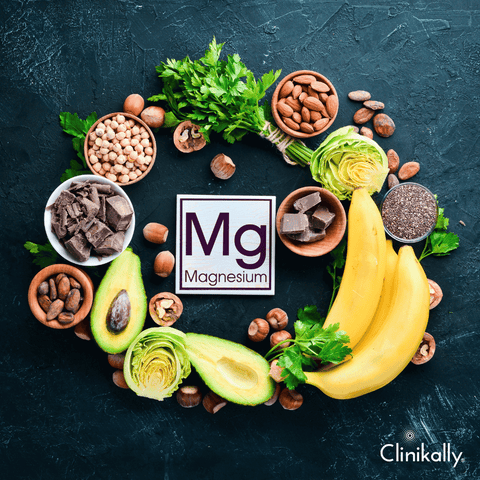
Increasing your intake of magnesium through diet is an effective way to promote healthy hair growth. Here are some foods that are rich in magnesium:
-
Leafy Green Vegetables: Spinach, kale, and Swiss chard are all excellent sources of magnesium.
-
Nuts and Seeds: Almonds, cashews, pumpkin seeds, and sunflower seeds are all good sources of magnesium.
-
Whole Grains: Brown rice, quinoa, and whole wheat bread are all high in magnesium.
-
Legumes: Black beans, kidney beans, and chickpeas are all good sources of magnesium.
-
Fish: Salmon, mackerel, and halibut are all good sources of magnesium.
-
Avocado: Avocado is also a good source of magnesium.
In addition to these dietary sources, magnesium supplements are also available. However, it is important to talk to a healthcare professional before starting any new supplements.
It is important to note that excessive magnesium intake can have adverse effects on health, including diarrhea, nausea, and abdominal cramping. Therefore, it is important to consume magnesium within the recommended daily intake limits.
In summary, increasing your intake of magnesium-rich foods such as leafy green vegetables, nuts and seeds, whole grains, legumes, fish, and avocado can help to promote healthy hair growth. However, it is important to consume magnesium within the recommended daily intake limits and consult a healthcare professional before starting any new supplements.
The Best Supplements for Boosting Magnesium Levels

If you are not getting enough magnesium through your diet, you may consider taking supplements to boost your magnesium levels. Here are some of the best supplements for increasing magnesium levels:
-
Magnesium Citrate: This form of magnesium is highly absorbable and can be effective in correcting a magnesium deficiency. It is also known to help with constipation.
-
Magnesium Glycinate: This form of magnesium is less likely to cause digestive issues and is well-tolerated by many people. It is often recommended for those with anxiety or sleep issues.
-
Magnesium Threonate: This form of magnesium is believed to be effective in crossing the blood-brain barrier, making it a good option for cognitive health.
-
Magnesium Chloride: This form of magnesium is often used topically in the form of a spray or oil. It can be effective in promoting relaxation and reducing muscle tension.
-
Magnesium Oxide: This form of magnesium is less expensive and widely available. However, it is less well-absorbed than other forms of magnesium and can cause digestive issues in some people.
When selecting a magnesium supplement, it is important to choose a high-quality product from a reputable manufacturer. It is also important to follow the recommended dosage on the supplement label and consult with a healthcare professional before starting any new supplements.
In summary, magnesium supplements can be an effective way to boost magnesium levels if you are not getting enough through your diet. Magnesium citrate, magnesium glycinate, magnesium threonate, magnesium chloride, and magnesium oxide are all popular supplement options, but it is important to choose a high-quality product and consult with a healthcare professional before starting any new supplements.
Why Magnesium is Important for Scalp Health

Magnesium plays a vital role in maintaining the health of the scalp, which in turn promotes healthy hair growth. Here are some of the reasons why magnesium is important for scalp health:
-
Promotes Blood Circulation: Magnesium helps to relax blood vessels and increase blood flow to the scalp, providing the necessary nutrients and oxygen for healthy hair growth.
-
Reduces Inflammation: Magnesium has anti-inflammatory properties that can reduce inflammation in the scalp. Inflammation can damage hair follicles and contribute to hair loss.
-
Balances Sebum Production: Magnesium helps to balance sebum production in the scalp, preventing excess oily scalp or dry scalp, which can lead to dandruff and hair loss.
-
Regulates Calcium Levels: Magnesium helps to regulate calcium levels in the scalp, preventing excess build-up that can clog hair follicles and contribute to hair loss.
-
Supports Enzyme Function: Magnesium is required for the production of enzymes that promote healthy hair growth.
-
Reduces Stress: Magnesium has been shown to help reduce stress and promote relaxation. Stress is a major contributor to hair loss.
In summary, magnesium is important for scalp health because it promotes blood circulation, reduces inflammation, balances sebum production, regulates calcium levels, supports enzyme function, and reduces stress. Ensuring adequate intake of magnesium through diet or supplementation can help to promote scalp health and healthy hair growth.
Regulating Calcium Levels for Healthy Hair
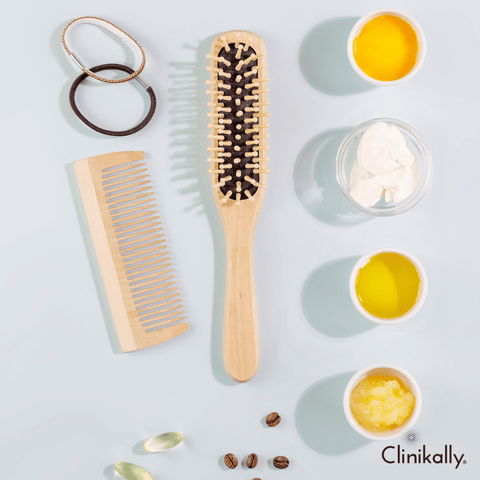
Regulating calcium levels is important for maintaining healthy hair. Here's why:
-
Excess calcium can contribute to hair loss: When there is an excess of calcium in the body, it can accumulate in the scalp and clog hair follicles, leading to hair loss.
-
Calcium is important for hair health: While excess calcium can be detrimental to hair health, calcium is still an important mineral for hair growth. Calcium is necessary for the proper function of the hair follicle and the growth of the hair shaft.
-
Magnesium helps regulate calcium levels: Magnesium is necessary for the regulation of calcium levels in the body. Without sufficient magnesium, excess calcium can accumulate in the scalp and lead to hair loss.
-
Vitamin D is necessary for calcium absorption: Vitamin D is necessary for the absorption of calcium from the diet. Without sufficient vitamin D, calcium levels in the body may be low, which can contribute to hair loss.
To regulate calcium levels for healthy hair, it is important to ensure sufficient intake of magnesium and vitamin D. Foods rich in magnesium include leafy green vegetables, nuts and seeds, whole grains, legumes, fish, and avocado. Foods rich in vitamin D include fatty fish, egg yolks, and fortified foods such as milk and cereal. Additionally, spending time in the sun can help the body produce vitamin D naturally.
In summary, regulating calcium levels is important for healthy hair. Excess calcium can contribute to hair loss, while calcium is also necessary for hair health. Ensuring sufficient intake of magnesium and vitamin D through diet or supplementation can help regulate calcium levels in the body, promoting healthy hair growth.
How Magnesium Helps Hair Follicles
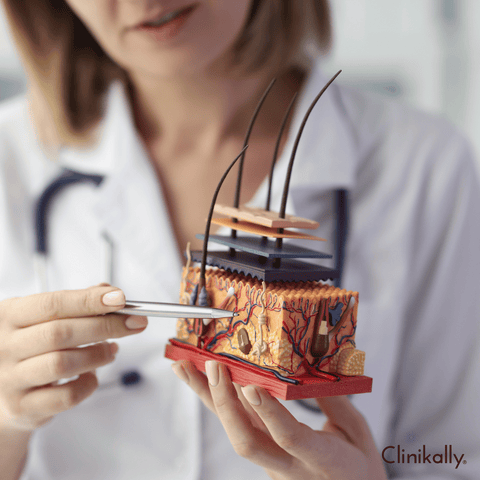
Magnesium plays an important role in promoting healthy hair follicles. Here are some of the ways magnesium helps hair follicles:
-
Promotes relaxation: Magnesium has a relaxing effect on the body, which can help to reduce stress and anxiety. Stress and anxiety can contribute to hair loss by causing hormonal imbalances and constricting blood vessels, preventing the delivery of nutrients and oxygen to the hair follicles.
-
Improves blood flow: Magnesium helps to relax blood vessels, promoting blood flow to the hair follicles. This delivers necessary nutrients and oxygen to the hair follicles, promoting healthy hair growth.
-
Enhances enzyme function: Magnesium is necessary for the production of enzymes that promote healthy hair growth. These enzymes are involved in the metabolism of proteins, which are necessary for the growth of hair follicles.
-
Balances calcium levels: Magnesium helps to balance calcium levels in the body. Without sufficient magnesium, excess calcium can accumulate in the scalp and clog hair follicles, leading to hair loss.
-
Reduces inflammation: Magnesium has anti-inflammatory properties that can help to reduce inflammation in the scalp. Inflammation can damage hair follicles and contribute to hair loss.
-
Promotes healthy cell growth: Magnesium is involved in the process of cell growth and division. This is important for the growth and repair of hair follicles.
In summary, magnesium helps hair follicles by promoting relaxation, improving blood flow, enhancing enzyme function, balancing calcium levels, reducing inflammation, and promoting healthy cell growth. Ensuring adequate intake of magnesium through diet or supplementation can help to promote healthy hair follicles and prevent hair loss.
How Diet Affects Magnesium Levels and Hair Growth

Diet can have a significant impact on magnesium levels and hair growth. Here are some of the ways diet affects magnesium levels and hair growth:
-
Magnesium-rich foods promote healthy hair growth: Magnesium-rich foods such as leafy green vegetables, nuts and seeds, whole grains, legumes, and fish can promote healthy hair growth. Magnesium is necessary for the production of enzymes that promote healthy hair growth.
-
Processed foods can deplete magnesium levels: Processed foods, especially those high in sugar and refined carbohydrates, can deplete magnesium levels in the body. This is because the body uses magnesium to process these types of foods.
-
Vitamin D-rich foods promote healthy hair growth: Vitamin D-rich foods such as fatty fish, egg yolks, and fortified foods such as milk and cereal can promote healthy hair growth. Vitamin D is necessary for the absorption of calcium, which is important for hair health.
-
A balanced diet promotes healthy hair growth: A balanced diet that includes a variety of nutrient-dense foods can promote healthy hair growth. This includes foods rich in vitamins and minerals such as vitamin C, vitamin E, iron, and zinc.
-
Dehydration can affect hair growth: Dehydration can affect hair growth by reducing blood flow to the scalp and preventing the delivery of necessary nutrients and oxygen to the hair follicles. Ensuring adequate hydration by drinking plenty of water and consuming hydrating foods can promote healthy hair growth.
In summary, diet plays an important role in magnesium levels and hair growth. Consuming magnesium-rich foods, avoiding processed foods, consuming vitamin D-rich foods, maintaining a balanced diet, and staying hydrated can all promote healthy hair growth.
The Impact of Stress and Lifestyle on Magnesium Levels and Hair Health
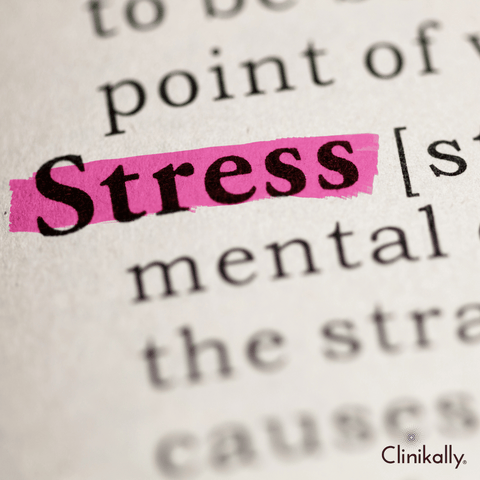
Stress and lifestyle can have a significant impact on magnesium levels and hair health. Here are some of the ways stress and lifestyle affect magnesium levels and hair health:
-
Stress can deplete magnesium levels: Stress can deplete magnesium levels in the body. When the body is under stress, it uses up magnesium to produce stress hormones. This can contribute to a magnesium deficiency, which can affect hair health.
-
Poor diet can contribute to magnesium deficiency: A poor diet high in processed foods and low in nutrient-dense foods can contribute to a magnesium deficiency. This can affect hair health by reducing the production of enzymes necessary for healthy hair growth.
-
Alcohol consumption can deplete magnesium levels: Alcohol consumption can deplete magnesium levels in the body. This can affect hair health by reducing blood flow to the scalp and preventing the delivery of necessary nutrients and oxygen to the hair follicles.
-
Lack of sleep can affect magnesium levels: Lack of sleep can affect magnesium levels in the body. This can affect hair health by contributing to stress and reducing the production of enzymes necessary for healthy hair growth.
-
Exercise can improve magnesium levels: Regular exercise can improve magnesium levels in the body. This can benefit hair health by promoting relaxation and improving blood flow to the scalp.
-
Relaxation techniques can benefit hair health: Relaxation techniques such as meditation, deep breathing, and yoga can help to reduce stress and promote relaxation. This can benefit hair health by reducing the production of stress hormones and promoting healthy blood flow to the scalp.
In summary, stress and lifestyle can affect magnesium levels and hair health. Stress, poor diet, alcohol consumption, lack of sleep, and a sedentary lifestyle can contribute to a magnesium deficiency, which can affect hair health. Regular exercise and relaxation techniques can help to promote healthy magnesium levels and benefit hair health.
The Importance of Vitamin D and Zinc for Hair Growth

Vitamin D and zinc are two essential nutrients that play a crucial role in promoting hair growth and maintaining healthy hair.
Vitamin D is important for hair growth because it helps to create new hair follicles and stimulates the growth of existing ones. It also plays a role in regulating the hair growth cycle, which can impact the thickness and quality of hair. Vitamin D deficiency has been linked to hair loss, so ensuring adequate intake of this vitamin is important for maintaining healthy hair.
Zinc is also essential for hair growth as it plays a critical role in protein synthesis and DNA production, both of which are necessary for hair follicle cells to divide and grow. Zinc deficiency has been associated with hair loss and thinning, and supplementation with zinc has been shown to improve hair growth in individuals with deficiency.
In addition to their individual roles, vitamin D and zinc also work together to promote hair growth. Vitamin D helps the body absorb and utilize zinc, and zinc is needed to convert vitamin D into its active form.
While getting enough vitamin D and zinc from food sources is important, supplementation may also be necessary for individuals with deficiencies or those experiencing hair loss. It is important to speak with a healthcare provider before starting any supplementation regimen.
Iron and Magnesium for Hair Loss in Women
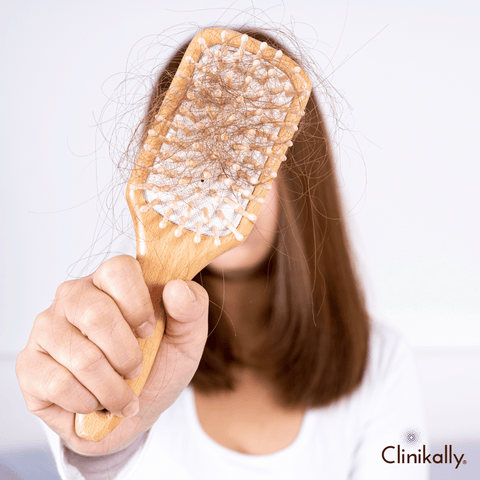
Iron and magnesium are two important nutrients that can help to prevent hair loss in women. Here's how they work:
Iron:
Iron is essential for healthy hair growth as it helps to carry oxygen to the hair follicles. Without adequate iron levels, the hair follicles can become starved of oxygen, leading to hair thinning and loss. Women are at higher risk of iron deficiency due to blood loss during menstruation.
To increase iron levels, women can consume iron-rich foods such as red meat, poultry, fish, beans, lentils, spinach, and fortified cereals. Iron supplements may also be recommended by a healthcare professional if iron levels are low.
Magnesium:
Magnesium is important for maintaining a healthy scalp and hair follicles. It helps to relax blood vessels, promoting blood flow and nutrient delivery to the hair follicles. Magnesium also helps to regulate calcium levels in the scalp, preventing the build-up of calcium that can clog hair follicles and lead to hair loss.
To increase magnesium levels, women can consume magnesium-rich foods such as nuts, seeds, whole grains, and leafy green vegetables. Magnesium supplements may also be recommended by a healthcare professional if magnesium levels are low.
In summary, iron and magnesium are important nutrients for preventing hair loss in women. Iron helps to carry oxygen to the hair follicles, while magnesium helps to promote healthy blood flow and regulate calcium levels in the scalp. Consuming iron- and magnesium-rich foods or taking supplements as recommended by a healthcare professional can help to maintain healthy levels of these nutrients and promote healthy hair growth.
How Magnesium Can Help Alopecia
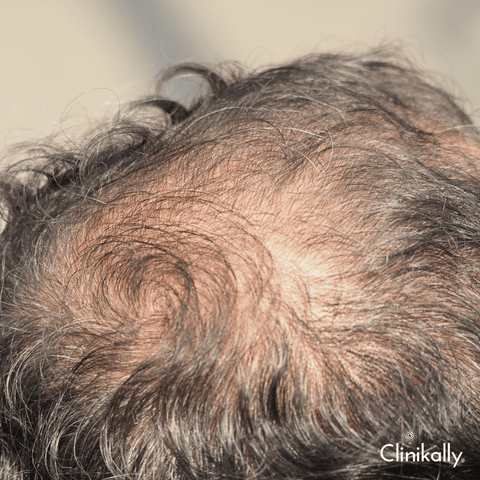
Alopecia is a medical condition characterized by hair loss. Magnesium is an essential mineral that can help to prevent and treat alopecia in several ways:
-
Promoting Hair Growth: Magnesium plays a key role in protein synthesis, which is essential for hair growth. Magnesium helps to activate enzymes that are involved in protein synthesis, which is necessary for healthy hair growth.
-
Regulating Calcium Levels: Magnesium helps to regulate calcium levels in the body, which is important for hair health. Calcium buildup in hair follicles can lead to clogged hair follicles, which can cause hair loss. Magnesium helps to prevent calcium build-up in the hair follicles, promoting healthy hair growth.
-
Reducing Inflammation: Magnesium has anti-inflammatory properties that can help to reduce inflammation in the scalp. Inflammation can cause hair loss by damaging hair follicles. Magnesium helps to reduce inflammation, promoting healthy hair growth.
-
Improving Circulation: Magnesium helps to relax blood vessels, improving blood flow to the scalp. Improved blood flow delivers essential nutrients and oxygen to the hair follicles, promoting healthy hair growth.
To benefit from magnesium's potential to help with alopecia, you can consume magnesium-rich foods such as nuts, seeds, whole grains, and leafy green vegetables. Magnesium supplements may also be recommended by a healthcare professional if magnesium levels are low. It is important to consult with a healthcare professional before taking any supplements or making changes to your diet.
The Role of Magnesium in Regulating Hormonal Balance

Magnesium plays a key role in regulating hormonal balance in the body. Hormonal imbalances can cause a wide range of health issues, including hair loss, acne, menstrual irregularities, and mood swings. Here are some ways that magnesium helps to regulate hormonal balance:
-
Regulating Insulin Levels: Magnesium helps to regulate insulin levels in the body, which is important for maintaining stable blood sugar levels. Insulin resistance, which can occur when insulin levels are consistently high, can lead to hormonal imbalances that contribute to hair loss and other health issues.
-
Regulating Estrogen and Progesterone Levels: Magnesium helps to regulate estrogen and progesterone levels in the body. Estrogen dominance, which occurs when estrogen levels are high relative to progesterone levels, can cause hormonal imbalances that contribute to hair loss and other health issues. Magnesium helps to regulate estrogen and progesterone levels, promoting hormonal balance.
-
Reducing Stress: Magnesium has a calming effect on the nervous system, reducing the levels of stress hormones such as cortisol in the body. High levels of cortisol can cause hormonal imbalances that contribute to hair loss and other health issues.
-
Regulating Thyroid Hormones: Magnesium helps to regulate thyroid hormones, which are important for maintaining healthy hair growth. Thyroid imbalances, which can occur when thyroid hormones are too high or too low, can contribute to hair loss and other health issues. Magnesium helps to regulate thyroid hormones, promoting healthy hair growth.
In summary, magnesium plays a critical role in regulating hormonal balance in the body. By regulating insulin levels, estrogen and progesterone levels, reducing stress, and regulating thyroid hormones, magnesium helps to promote healthy hair growth and prevent hair loss. Consuming magnesium-rich foods or taking magnesium supplements as recommended by a healthcare professional can help to maintain healthy magnesium levels and promote hormonal balance.
The Link Between Magnesium and DHT
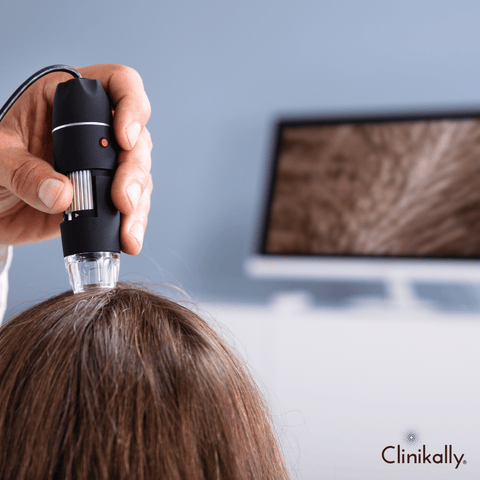
Dihydrotestosterone (DHT) is a hormone that plays a key role in hair loss. DHT binds to hair follicles, shrinking them and leading to hair thinning and eventually hair loss. Magnesium has been shown to play a role in regulating DHT levels in the body.
Research has shown that magnesium can inhibit the activity of 5-alpha-reductase, an enzyme that converts testosterone to DHT. By inhibiting the activity of this enzyme, magnesium can help to reduce DHT levels in the body, which can help to prevent hair loss.
In addition to inhibiting 5-alpha-reductase, magnesium can also help to reduce inflammation in the scalp. Inflammation can contribute to hair loss by damaging hair follicles and disrupting hair growth. By reducing inflammation, magnesium can help to promote healthy hair growth and prevent hair loss.
Magnesium can be consumed through magnesium-rich foods or supplements as recommended by a healthcare professional. However, it's important to note that consuming excessive amounts of magnesium can be harmful, so it's important to consult with a healthcare professional before taking any supplements or making changes to your diet.
The Top Foods High in Magnesium for Hair Health
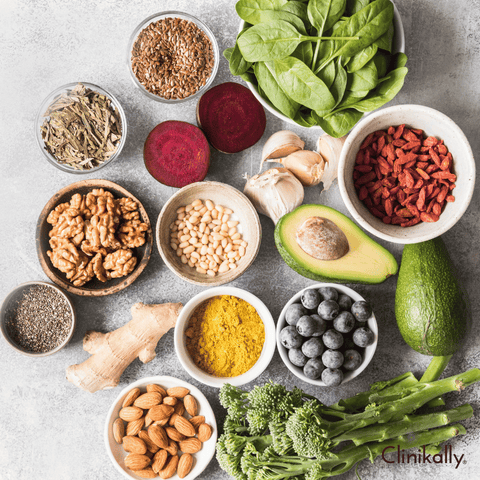
Here are some foods that are high in magnesium and can help to promote healthy hair:
-
Spinach: Spinach is a nutrient-dense leafy green vegetable that is high in magnesium, iron, and other vitamins and minerals that are important for hair health.
-
Almonds: Almonds are a good source of magnesium, as well as protein and healthy fats, which are important for promoting healthy hair growth.
-
Avocado: Avocado is a nutrient-dense fruit that is high in magnesium, healthy fats, and other vitamins and minerals that are important for hair health.
-
Salmon: Salmon is a fatty fish that is high in magnesium, omega-3 fatty acids, and other nutrients that are important for promoting healthy hair growth.
-
Pumpkin seeds: Pumpkin seeds are a good source of magnesium, protein, and other vitamins and minerals that are important for hair health.
-
Dark chocolate: Dark chocolate is a good source of magnesium and antioxidants, which can help to promote healthy hair growth.
-
Black beans: Black beans are a good source of magnesium, protein, and other nutrients that are important for hair health.
It's important to note that consuming a balanced diet that includes a variety of nutrient-dense foods is important for overall health, including hair health. Incorporating these magnesium-rich foods into your diet can help to promote healthy hair growth and prevent hair loss. However, if you're concerned about your magnesium levels or are experiencing hair loss, it's important to consult with a healthcare professional for personalized advice.
The Benefits of Taking Magnesium Supplements for Hair Growth

Magnesium supplements may provide several benefits for hair growth, including:
-
Promoting healthy hair growth: Magnesium is essential for healthy hair growth, and taking magnesium supplements can help to ensure that your body has enough of this important mineral to support hair growth.
-
Reducing hair loss: As discussed earlier, magnesium plays a role in regulating DHT levels in the body, which can help to prevent hair loss.
-
Improving scalp health: Magnesium has anti-inflammatory properties that can help to reduce inflammation in the scalp, which can contribute to hair loss.
-
Boosting overall health: Magnesium is important for overall health and well-being, and taking magnesium supplements can help to ensure that you're getting enough of this essential mineral.
It's important to note that taking excessive amounts of magnesium supplements can be harmful, so it's important to consult with a healthcare professional before taking any supplements or making changes to your diet. Additionally, while magnesium supplements may be beneficial for some people, it's important to address any underlying health conditions or lifestyle factors that may be contributing to hair loss.
How to Choose the Right Magnesium Supplement for You

There are several types of magnesium supplements available, each with their own unique properties and benefits. Here are some factors to consider when choosing the right magnesium supplement for you:
-
Type of magnesium: Some common types of magnesium supplements include magnesium citrate, magnesium oxide, magnesium glycinate, and magnesium chloride. Each type of magnesium has different absorption rates and may be better suited for different health concerns. For example, magnesium citrate may be beneficial for promoting bowel regularity, while magnesium glycinate may be better suited for promoting relaxation and reducing stress.
-
Dosage: The recommended dosage of magnesium supplements can vary depending on your age, sex, and health status. It's important to follow the recommended dosage instructions on the supplement label or as prescribed by your healthcare professional.
-
Form of supplement: Magnesium supplements are available in various forms, including capsules, tablets, powders, and liquids. Choose a form that is easy for you to take and that fits your lifestyle.
-
Quality and purity: Look for magnesium supplements from reputable brands that use high-quality ingredients and undergo third-party testing to ensure purity and potency.
-
Consider any health conditions: If you have any health conditions or are taking medications, it's important to consult with a healthcare professional before taking any magnesium supplements to ensure that they are safe and appropriate for you.
Overall, it's important to choose a magnesium supplement that is appropriate for your individual needs and health status. Consulting with a healthcare professional can help you choose the right magnesium supplement and ensure that it's safe and effective for you.
Other Ways to Boost Magnesium Levels for Healthy Hair
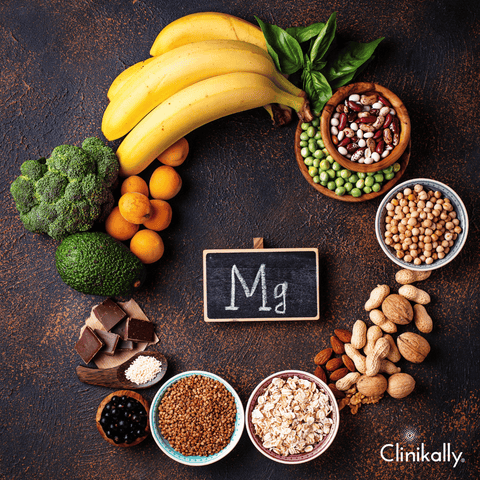
In addition to taking magnesium supplements, there are several other ways to boost magnesium levels for healthy hair:
-
Eat magnesium-rich foods: Incorporating magnesium-rich foods into your diet is one of the best ways to boost your magnesium levels. Foods that are high in magnesium include leafy greens, nuts, seeds, whole grains, and legumes.
-
Reduce stress: Stress can deplete magnesium levels in the body, so it's important to manage stress through practices such as meditation, yoga, or deep breathing exercises.
-
Get enough sleep: Lack of sleep can also contribute to magnesium depletion, so it's important to prioritize getting enough quality sleep each night.
-
Limit caffeine and alcohol intake: Caffeine and alcohol can interfere with magnesium absorption, so it's important to consume these substances in moderation.
-
Consider transdermal magnesium: Transdermal magnesium is a form of magnesium that is absorbed through the skin, typically through the use of magnesium sprays, hair oils, or bath salts. This can be a good option for those who have difficulty absorbing magnesium supplements orally.
-
Address any underlying health conditions: Certain health conditions, such as gastrointestinal disorders or diabetes, can interfere with magnesium absorption. If you have an underlying health condition that may be affecting your magnesium levels, it's important to work with a healthcare professional to manage your condition and ensure that you're getting enough magnesium.
By incorporating these strategies into your routine, you can help to boost your magnesium levels and promote healthy hair growth.
Conclusion: Magnesium is Essential for Healthy Hair Growth
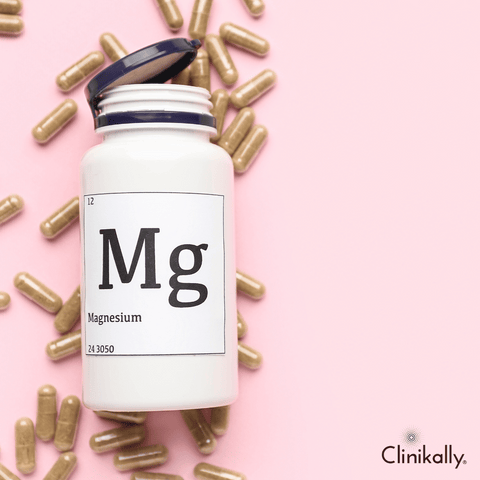
In conclusion, magnesium is an essential nutrient that plays a vital role in promoting healthy hair growth. Magnesium helps to regulate calcium levels, which is important for hair follicle health and growth. It also helps to improve circulation and reduce inflammation, which can promote a healthy scalp environment for hair growth. In addition, magnesium helps to regulate hormonal balance and can reduce the production of DHT, which can contribute to hair loss.
Ensuring that you're getting enough magnesium through your diet or supplementation can help to promote healthy hair growth and reduce the risk of hair loss. However, it's important to choose the right type and dosage of magnesium supplement that works for your individual needs and health status. Incorporating other strategies, such as reducing stress, getting enough sleep, and addressing any underlying health conditions, can also help to boost magnesium levels and promote healthy hair growth.

































1 comment
Di
Does a pink scalp indicate that it is inflamed? I understand your scalp should be white, but I would have thought a pink scalp would indicate better blood flow.
Does a pink scalp indicate that it is inflamed? I understand your scalp should be white, but I would have thought a pink scalp would indicate better blood flow.